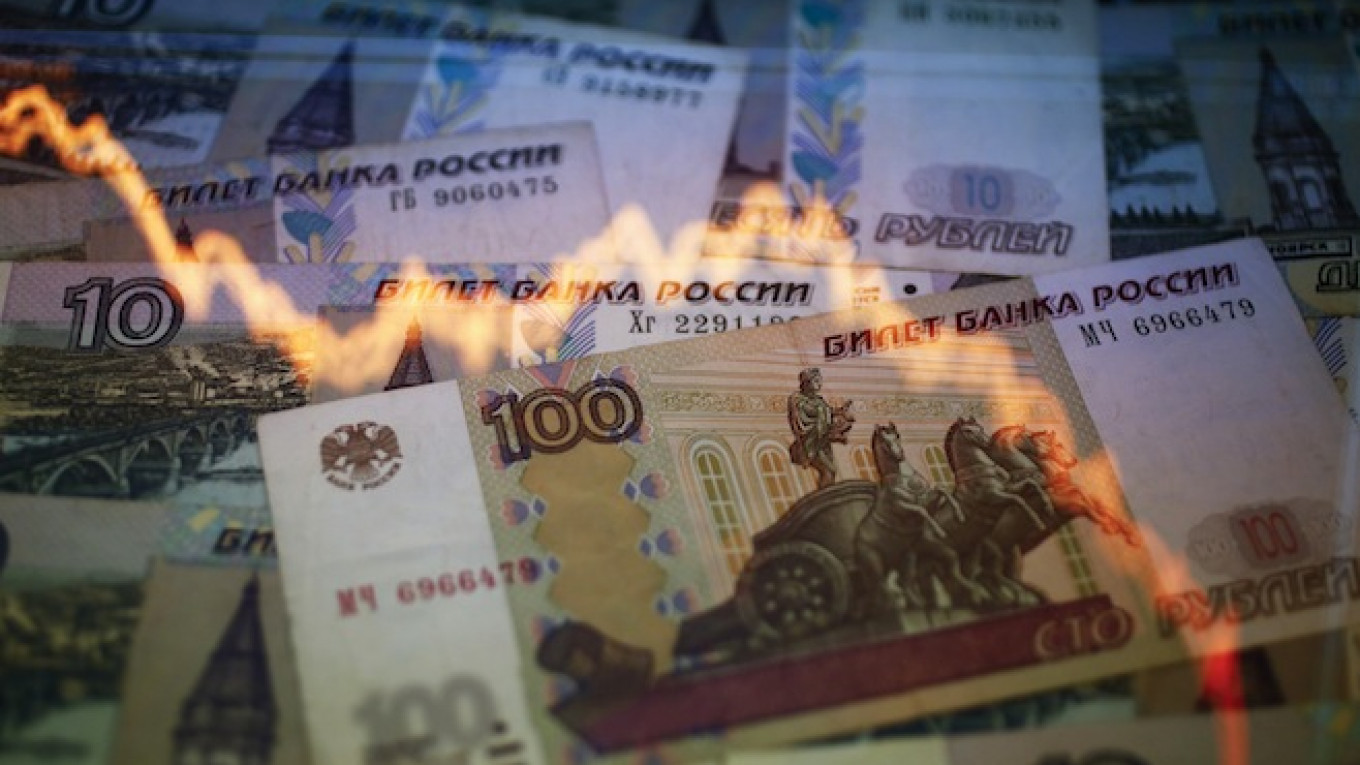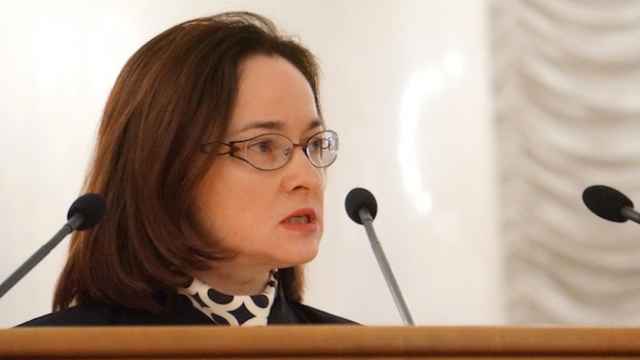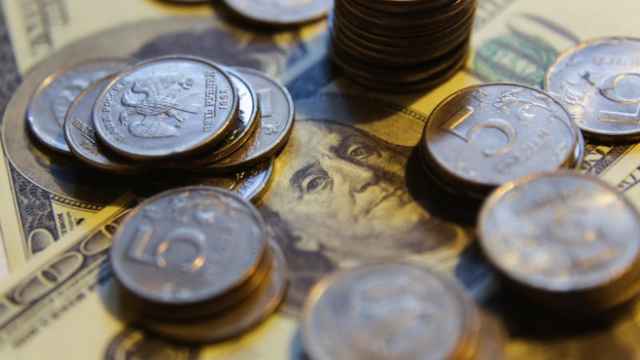Russian stocks saw a small bounce on Monday, while the ruble was steady, after the European Union decided not to impose more sanctions against Russia for now over Moscow's actions in Ukraine.
EU foreign ministers agreed to put more Russia-backed Ukrainian separatists on their sanctions list, but did not extend measures against Russia itself.
The decision helped the ruble recover after falling early on Monday as the price of oil, Russia's major export, dropped more than $1 to just over $78 a barrel.
It has hit after the International Energy Agency on Friday said it expected downward pressure on oil prices to continue.
At 8:45 p.m. Moscow time the ruble was down 0.02 percent against the U.S. dollar at 47.18, and was 0.5 percent stronger at 58.75 against the euro.
The market shrugged off the Central Bank's debut auction of one-year dollar repos, part of a scheme to provide foreign currency loans to Russian banks and shore up the ailing ruble, even though the sale drew weak demand.
For most of the day the ruble had been down around 0.3 percent against the dollar and 0.1 percent against the euro, but rallied after the EU decision, briefly entering positive territory against the dollar before falling back.
The dollar-denominated RTS stock index was up 0.12 percent at 1,004.13 points, while the ruble-based MICEX was up 0.42 percent at 1,507.10 points.
Investors had been wary ahead of the EU foreign ministers meeting, although EU officials had earlier said new sanctions against Russia were not likely at this stage.
President Vladimir Putin came under heavy criticism at a G20 summit over the weekend, where Western leaders accused him of continuing to destabilize Ukraine in violation of a September peace agreement.
At the Central Bank's auction of one-year dollar repos, banks demanded just $87.7 million, out of $10 billion on offer.
The Central Bank said the low demand showed that a shortfall of forex had been addressed, while analysts said that it was negative but not a crucial factor for the ruble.
"All of the focus of investors right now is much less on this technical shortage of dollars in Russia … and much more on the oil prices, which are below $80," said Rosbank analyst Yury Tulinov.
Separately, the Finance Ministry said Monday that it had placed $2.1 billion in a 28-day deposit auction, compared with a limit of $3 billion, in another step by the Russian authorities to meet heavy demand for foreign currency.
A Message from The Moscow Times:
Dear readers,
We are facing unprecedented challenges. Russia's Prosecutor General's Office has designated The Moscow Times as an "undesirable" organization, criminalizing our work and putting our staff at risk of prosecution. This follows our earlier unjust labeling as a "foreign agent."
These actions are direct attempts to silence independent journalism in Russia. The authorities claim our work "discredits the decisions of the Russian leadership." We see things differently: we strive to provide accurate, unbiased reporting on Russia.
We, the journalists of The Moscow Times, refuse to be silenced. But to continue our work, we need your help.
Your support, no matter how small, makes a world of difference. If you can, please support us monthly starting from just $2. It's quick to set up, and every contribution makes a significant impact.
By supporting The Moscow Times, you're defending open, independent journalism in the face of repression. Thank you for standing with us.
Remind me later.






